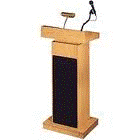
Discipline-Based Education Research Group Speaker Series
ORCID IDs
Date of this Version
11-14-2012
Document Type
Conference Proceeding
Abstract
Providing students with inquiry‐based learning experiences was a key recommendation made in the National Academies' 2007 report, Rising Above the Gathering Storm: Energizing and Employing America for a Brighter Economic Future, and this presentation is about a model for providing such experiences to college‐level students through a field‐based geology course. GEOL 160 – Fundamentals of Geosciences in the Field was developed 10 years ago for undergraduate students preparing to be K‐12 science teachers. The goals of the course are to enhance undergraduate pre‐service science teachers’ (i) knowledge of geoscience and the nature of science, (ii) attitudes about science, and (iii) understanding of inquiry‐based learning. The three‐week summer course takes students through Nebraska, Wyoming, and South Dakota. To do this, the course is designed around national and NE science standards and the instructional approach models best teaching practices, which students can then implement in their future classrooms. The impact this course had on student attitudes and learning as well as on developing a community of learners within and beyond the course itself will be shared through various media.
A central theme of the course is the value of scientific habits‐of‐mind where curiosity drives the pursuit of knowledge and is necessary to solving geological problems. GEOL 160 – Fundamentals of Geosciences in the Field and GEOS 898 ‐ Methods of Geoscience Field Instruction offer pre‐ and inservice K‐12 teachers a ‘mental boot‐camp’ experience where frustration fuels the desire to find information and explore possible explanations to solve geological questions with which they are confronted. Witnesses to this process include a science writer, a formal evaluator for the NSF award to study this approach, a colleague, and scores of former participants who recruit their peers for the next course.
In designing the course, the primary instructor hypothesized that the course would have a positive influence on how its participants would teach in the future. What he did not expect is how deeply this course would impact his own teaching. Witnessing the transformation of course participants, the high level of their sustained engagement, and real‐science interactions in peer‐teaching and discussion/debates, improved his confidence in implementing inquiry‐based instruction. Based on his experiences with this course, he now also uses an inquiry‐based approach to teaching his other campus-based and online courses.
Operational costs to run this course have been provided by EAS (dept. and alumni), NMSSI, NSF, AAPG Foundation, and an endowment with the NU Foundation established by a retired school teacher. We are now exploring the feasibility and utility of using this course as a vehicle to promote networking and community building among educators in rural ESUs and local school districts.
Included in
Curriculum and Instruction Commons, Educational Methods Commons, Higher Education Commons, Science and Mathematics Education Commons

